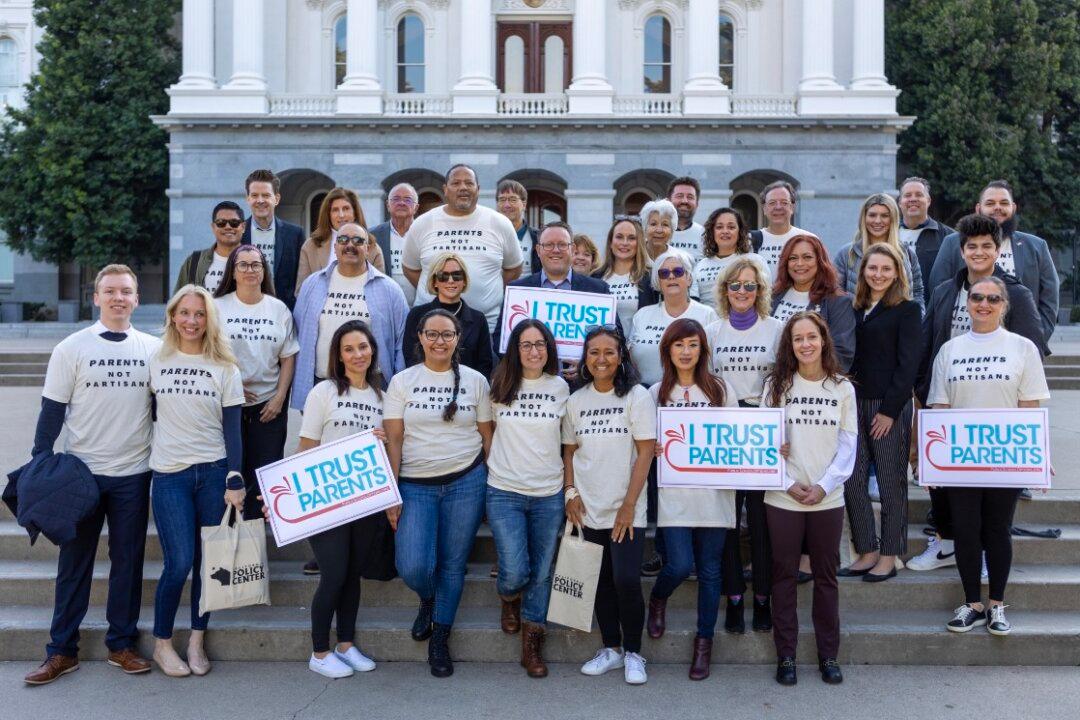Parent rights and school board accountability were the highlights of a two-day conference in Sacramento, California, earlier this month focused on California schools.
The issues were discussed as part of the California Policy Center’s “Parents, Not Partisans” summit on Feb. 8 and Feb. 9, where more than 100 parents, grassroots organizers, education reformers, and school board members attended. It was the organization’s second such conference in two years.





